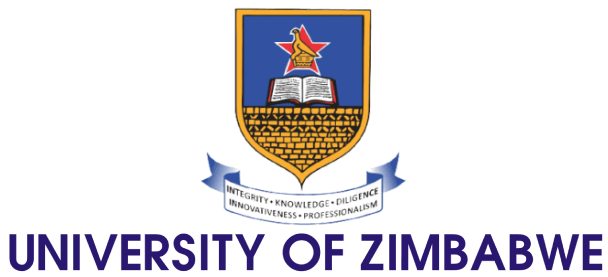The Government of Zimbabwe (GoZ) reported its first case of Covid-19 on March 20, 2020 and quickly responded by instituting various infection prevention and control measures to prevent the spread of the Covid-19. As part of the containment measures of the Coronavirus, the government encouraged the public to remain in their homes, work from home, practice hand hygiene by washing hands frequently, practice physical distancing, and the wearing of face masks in all public places. These measures resulted in all schools and universities closing for face-to-face contact learning. The COVID-19 pandemic disrupted education systems globally, resulting in increased inequalities and affected the most vulnerable learners the hardest. The objectives of this project are to The emergence of the COVID-19 pandemic in 2020 resulted in the closure of the University to face-to-face contact learning affecting all students irrespective of status. The University of Zimbabwe responded to the COVID-19 induced disruption to teaching and learning through the use of Information and Communication Technology tools in several ways. First, the University upgraded the ICT infrastructure, secondly introduced a robust e-LMS (Electronic Learning Management System) to for 24/7 access to teaching and learning. The University digitized specific teaching and learning resources for 24/7 access and conducted capacity building for all students and staff through training of use of the resources. The University upgraded assistive technologies and software for students with disabilities and then offered zero rated mobile data to specific ICT online resources to promote inclusive and equitable access to teaching and learning. Despite the Covid 19 pandemic disruptions the University recorded achievements through the introduction of blended learning, training of staff and students on the use of eLearning methods, the provision of zero rated learning data to staff and students as well as leveraged on the government establishment of Information Centers which helped students in remote and disadvantaged communities access ICT infrastructure and resources. The University managed to successfully conduct its business by achieving optimum student enrolment, successful teaching and learning through equitable access to the eLearning Management System and access to reading resources for all students and staff. The examinations were successfully conducted with the introduction of a staggered system where different groups of students wrote and completed their examinations at different time periods. Consequent of the foregoing, the 2020 and 2021 graduation ceremonies were held timeously using a blended format of fewer students graduating physically whilst the majority attending virtually. In implementing the ICT based learning the institution encountered and managed i. Resourcing unplanned disruptions from campus face-to-face to ICT vi. The rolling of students from one semester to another to ensure thatBackground
Interventions
Achievements
Sustainability
Challenges
the following challenges:
based teaching and learning
ii. Negotiating for affordable data costs with Internet Service Providers
iii. Managing cohorts of students for face-to-face examinations
iv. The management of online examination protocols for large groups of
students
v. The gradual movement of staff from using social media to the
comprehensive UZ e-LMS for teaching and learning
the semesters remained on course and not fall way behind.
